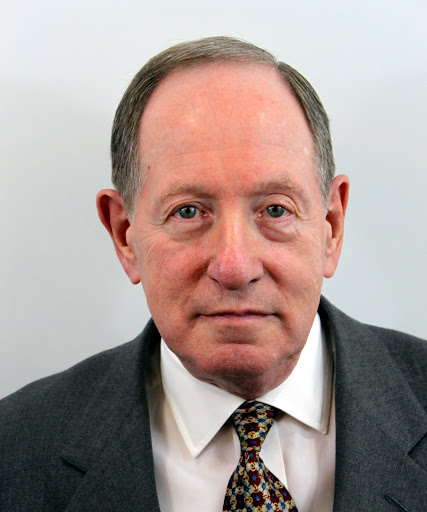Up Close with Professor Daniel Chill
Professor, Lawyer, Gerrymanderer

1) Where do you teach? What classes are you teaching this semester?
I teach six courses at Lander College for Women–Legal Principles, American Politics, State and Local Government and classes on the three branches of government—Executive, Legislative and Judicial.
The first three I teach mostly in the traditional lecture mode, but the branches of government are taught like law school, using the case method. I assign cases for the students to read that are connected to the Presidency, Congress and Supreme Court and we discuss them in class.
2) What is most rewarding about teaching in college?
I never stop being inspired by the students. I greatly appreciate seeing their personal growth from the time they begin school until they finish. It’s incredibly rewarding to see how my classes impact their lives and world view. I like to think I’m encouraging the students to develop intellectually, learn to think and also, to achieve further educational growth after college. In today’s world, a bachelor’s degree is as basic as a high school diploma was years ago. An advanced degree is necessary in order to succeed in nearly every profession so I encourage my students to continue their education after college.
3) Were there any students that stood out over the years?
We have some incredibly accomplished students. One young woman was challenged by a major hearing loss and I and the faculty worked closely with her to achieve her educational goals. Today, she is in a graduate program in education in a distinguished academic institution.
Another student became a movie producer and recently released a documentary highlighting anti-semitism on campus that was shown all over the country. When she came to Lander College for Women for the screening, I was honored that she asked me to introduce the film.
4) What type of law do you practice? What does your role as chief gerrymanderer for the state of New York entail and how did you earn that title?
I do general and commercial litigation which includes lots of estate and real estate litigation. Additionally, I’ve served as New York State Assembly’s chief gerrymanderer since 1965. Every 10 years when the census is taken, the legislative districts must be updated. People may have moved and because of the law requiring one person one vote, the district lines need to be redone. I advise on drawing the lines to make the districts approximately equal in population and defend the Assembly in lawsuits if people challenge where the lines were drawn.
I came to this role by accident. In 1965, after graduating Yale Law School, I got a job as chief counsel to the NYS Assembly. I learned to give legal advice on drawing the district lines and eventually developed expertise in the area. I am hired every 10 years to perform this task and proud to say that I have served six NYS speakers.
5) You’ve worked with NYS government for nearly 40 years. What do you most enjoy about working with government?
I’m a real believer that government can work, provided we understand what government is supposed to do. I believe in compromise and hope we can bring that back. Today, government is about tribalism. If you have 435 congressmen and you can’t get them to agree on anything, then we have a serious problem in terms of which laws can be passed.
We need to go back to the concept of sitting in a room and saying “I’ll trade you this for this.” It’s called compromise. We’re not all identical but we can and should learn to see each other’s viewpoints and work together to achieve common goals.
6) Why did you recently submit a brief on the U.S. Supreme Court voting rights case?
The Constitution is unclear regarding who is counted when designing Congressional districts. The question before the Supreme Court was this--in addition to citizens, should the 25 million aliens, who are counted in the census, also be counted when constructing the districts? I believe legal aliens should be counted in constructing the districts so they will have a voice in Congress and the Supreme Court has heard oral argument, but the case has not yet been decided.
7) What would you say was the high point of your career?
Getting into Yale Law School was a high point as was becoming chief counsel of the speaker of NYS Assembly. Later on, becoming a professor at Lander was pretty exciting. It’s hard to point to one moment as these were all rewarding experiences and each piece adds something to the amalgam of my career. Working for high level government, scholarship/teaching and academic achievement were all fulfilling.
8) Why did you initially choose to become a lawyer?
It’s simple. I was terrible at math but otherwise, possessed decent analytical skills.
9) Knowing what you now know about the field, would you have chosen it? Why?
I would have chosen it because it’s unique to my skills and talents. Law is a good fit for me, but obviously, it’s not for everybody
10) What advice would you give students considering a legal career?
Major in economics. It’s an excellent foundation. I would recommend doing a JD/MBA or earning a masters in economics before entering law school. In today’s cut-throat world, it’s too tough to go straight from college to law school. I believe successful lawyers need maturity, grounding and more background to hit the top of the field.

